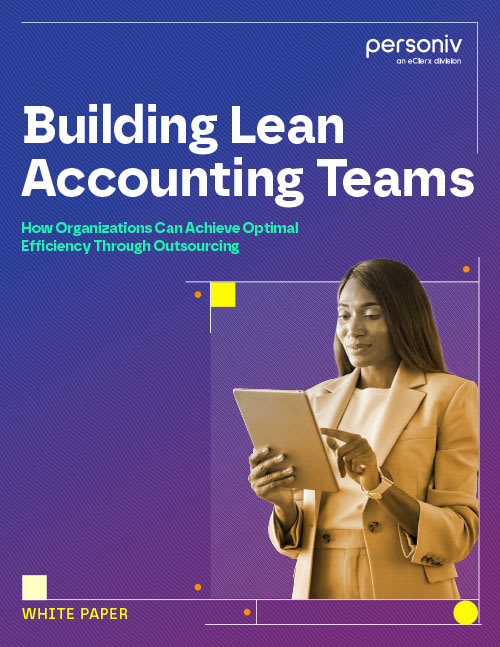Outsourced finance is an excellent tool for any company looking to optimize operations and focus on growth. By outsourcing finance functions, companies can save significant time and money, reinvesting those resources into core competencies. But selecting the right partner is key to realizing these benefits. A critical part of that process involves knowing the right questions to ask a finance provider.
Along the way, there tends to be 1 big question first-time outsourcers bump up against when they start exploring how to leverage it:
"How do we get there from here?"
Any organizational undertaking that introduces a significant shift in operations requires an initial investment of time and – there's no getting around it – an opportunity cost that's represented by the time spent discovering the right provider for the job. There's something that feels a little counterintuitive about the up-front time expenditure involved in selecting a partner that exists to ultimately save you time, isn't there?
Key Questions to Ask When Evaluating a Finance Provider
It's also a unique opportunity to evaluate a potential partnership from the very start: a proactive approach on your end coupled with a provider that operates from a place of transparency can make the initial stages of vendor selection much easier and far less time-consuming.
Outsourced financial partners that are invested in the success of their clients are also the ones that enthusiastically and honestly answer your questions at the outset, giving you the clearest picture available of what a future working relationship with them will look like and whether or not it will be a good fit. The questions in this resource are designed to help bring that picture into sharp focus and create a proactive starting point as you move toward the vendor selection phase.
What's Inside?
You'll begin with a series of questions that are designed to be answered internally. These give you, your key stakeholders, and the internal decision-making unit an opportunity to document the scope of your needs and clarify the goals you hope to achieve by leveraging FAO, and can be revisited or modified as those needs and goals change.
From there, you'll move through five key areas of evaluation criteria – Company Profile, Capability, Culture Fit, Communication, and Quality Control – by asking important questions that are relevant to each category. The reason for the inclusion of categories like Capability and Quality Control is probably obvious to you: you need to know that the vendor you choose can do the job you need them to, and do it well!
Other categories, like Culture Fit, are designed to help you determine the vendors that are most likely to bring strong "soft" skills to the relationship. Don't underestimate these. A set of shared values and cultural compatibilities is just as important in business relationships as they are anywhere else. A vendor that shares your company's values is likelier to provide the emotional buy-in required to ultimately share your goals and help you meet them.
Why Culture Fit, Shared Values & Technology Matters
Consider that when Deloitte surveyed business process outsourcing clients in 2016 and asked them to identify opportunities for improvement with their service providers, the top 2 issues leaders identified were "Proactivity" and "Innovation", often referred to as "soft skills". If a provider can show a history of technical expertise and a set of shared values with your organization, they should go on your shortlist of potential vendors.
The final section of questions can be used to create a reference check on the vendors that make their way onto that shortlist. They include fact-finding and corroboratory questions that will allow you to take the temperature of a potential vendor's client satisfaction record and gain insights into what working with your shortlisted candidates is really like.
This resource can be used for quick reference by simply checking off each question as it's answered, or as a key part of your decision-making process as you begin to develop a shortlist of potential vendors. Bookmark it and return to it as often as you need. And if you're interested in more, be sure to visit our resources hub.
Take the next step: Download your free checklist now to ensure you ask all the critical questions. And If any other questions come up about choosing a finance provider or how outsourcing could benefit your business, feel free to contact us.



